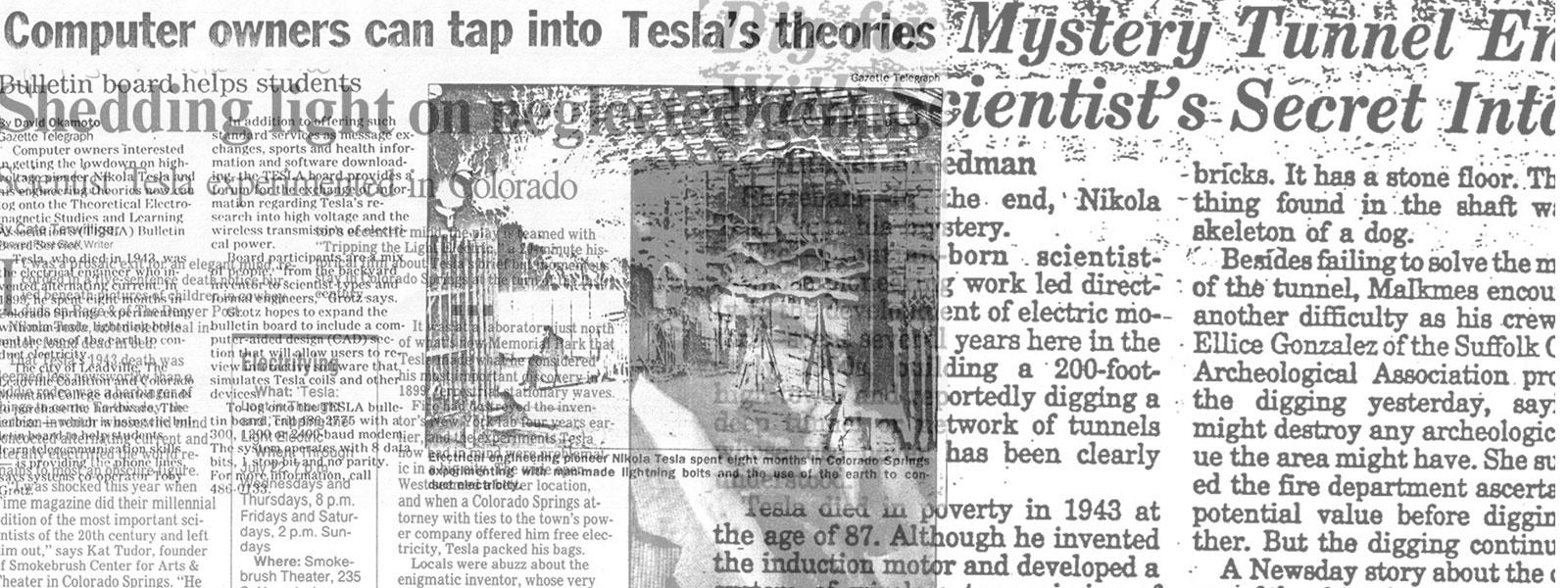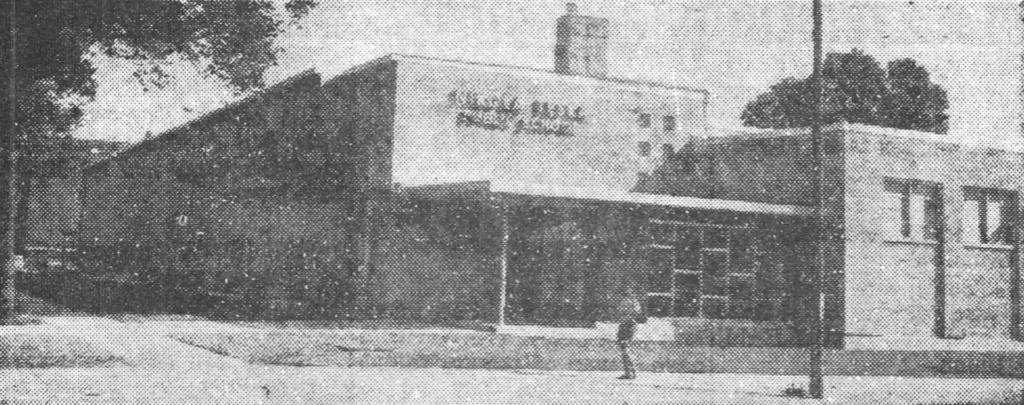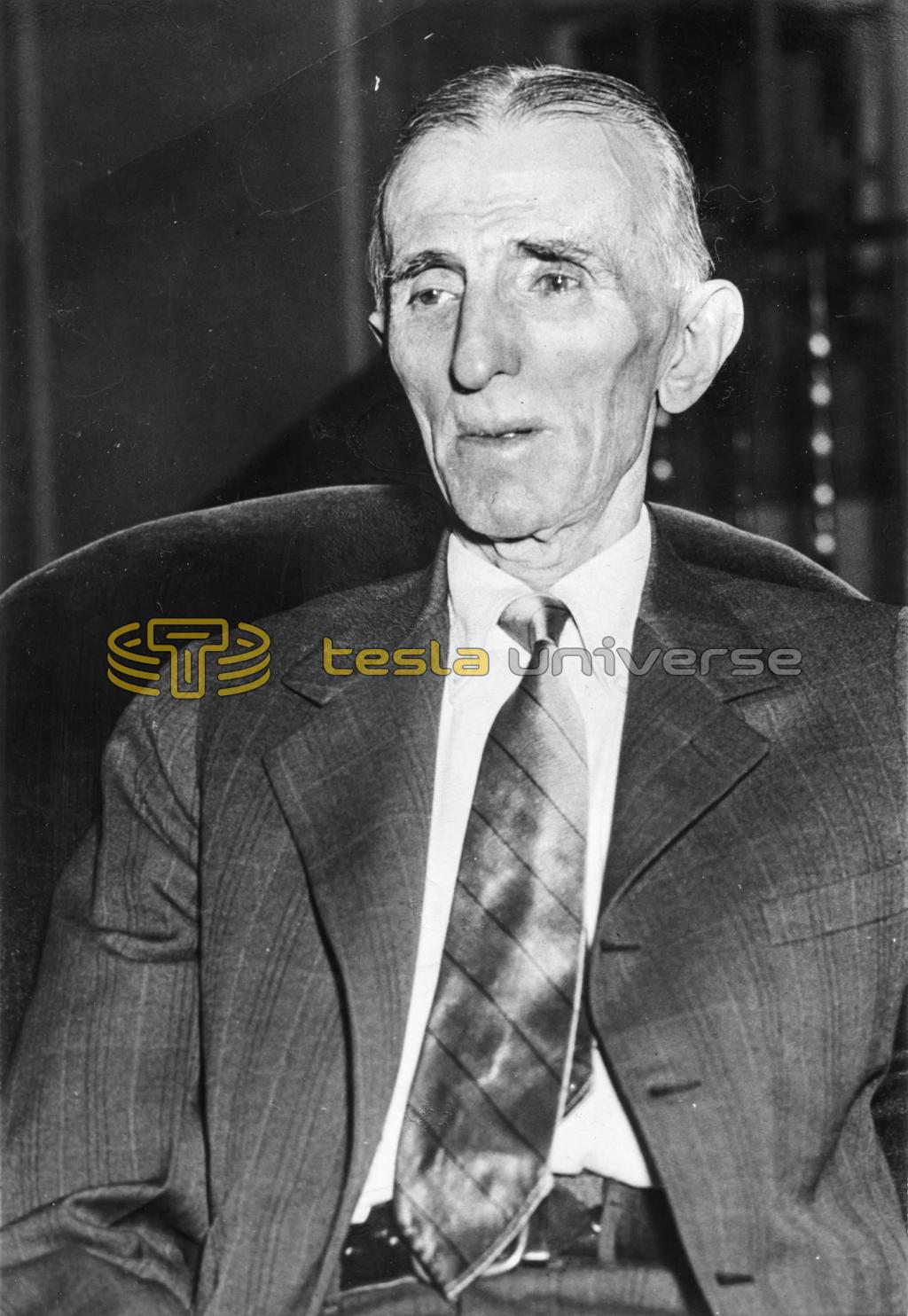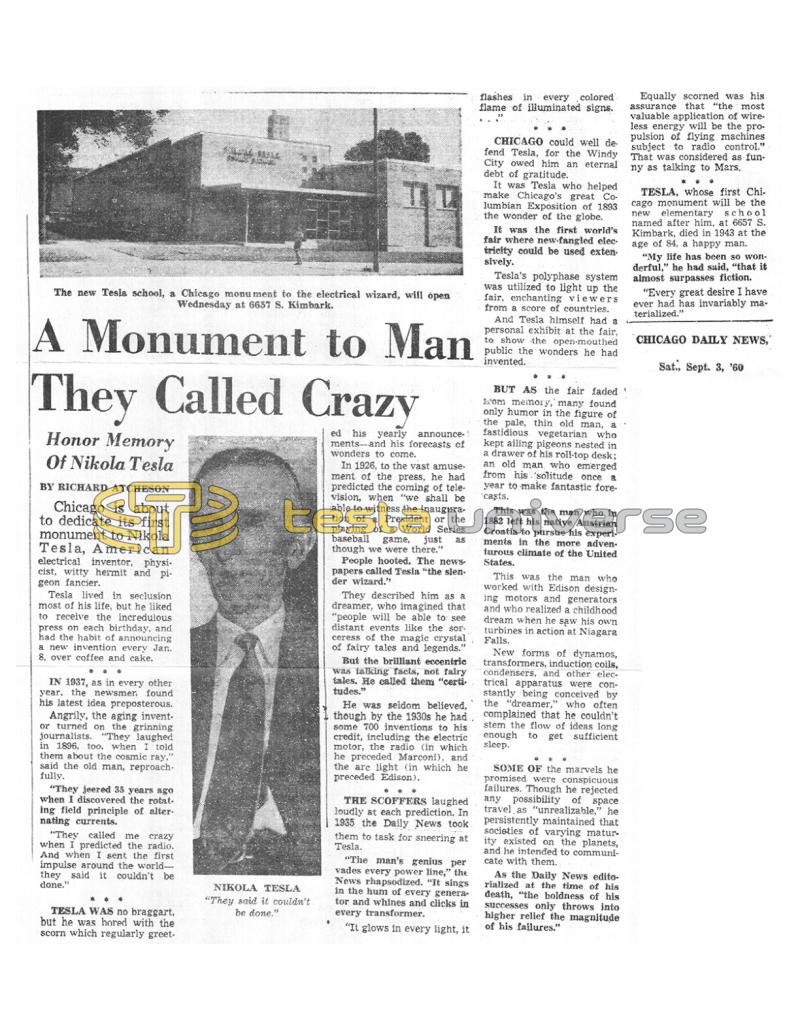
Nikola Tesla Articles
A Monument to Man They Called Crazy
Honor Memory Of Nikola Tesla
Chicago is about to dedicate its first monument to Nikola Tesla, American electrical inventor, physicist, witty hermit and pigeon fancier.
Tesla lived in seclusion most of his life, but he liked to receive the incredulous press on each birthday, and had the habit of announcing a new invention every Jan. 8, over coffee and cake.
In 1937, as in every other year, the newsmen found his latest idea preposterous.
Angrily, the aging inventor turned on the grinning journalists. "They laughed in 1896, too, when I told them about the cosmic ray," said the old man, reproachfully.
"They jeered 35 years ago when I discovered the rotating field principle of alternating currents.
"They called me crazy when I predicted the radio. And when I sent the first impulse around the world - they said it couldn't be done."
Tesla was no braggart, but he was bored with the scorn which regularly greeted his yearly announcements - and his forecasts of wonders to come.
In 1926, to the vast amusement of the press, he had predicted the coming of television, when "we shall be able to witness the inauguration of a President or the playing of a World Series baseball game, just as though we were there."
People hooted. The newspapers called Tesla "the slender wizard."
They described him as a dreamer, who imagined that "people will be able to see distant events like the sorceress of the magic crystal of fairy tales and legends."
But the brilliant eccentric was talking facts, not fairy tales. He called them "certitudes."
He was seldom believed, though by the 1930s he had some 700 inventions to his credit, including the electric motor, the radio (in which he preceded Marconi), and the arc light (in which he preceded Edison).
The scoffers laughed loudly at each prediction. In 1935 the Daily News took them to task for sneering at Tesla.
"The man's genius pervades every power line," the News rhapsodized. "It sings in the hum of every generator and whines and clicks in every transformer.
"It glows in every light, it flashes in every colored flame of illuminated signs.
Chicago could well defend Tesla, for the Windy City owed him an eternal debt of gratitude.
It was Tesla who helped make Chicago's great Columbian Exposition of 1893 the wonder of the globe.
It was the first world's fair where new-fangled electricity could be used extensively.
Tesla's polyphase system was utilized to light up the fair, enchanting viewers from a score of countries.
And Tesla himself had a personal exhibit at the fair, to show the open-mouthed public the wonders he had invented.
But as the fair faded from memory, many found only humor in the figure of the pale, thin old man, a fastidious vegetarian who kept ailing pigeons nested in a drawer of his roll-top desk; an old man, who emerged from his solitude once a year to make fantastic forecasts.
This was the man who in 1882 left his native Austrian Croatia to pursue his experiments in the more adventurous climate of the United States.
This was the man who worked with Edison designing motors and generators and who realized a childhood dream when he saw his own turbines in action at Niagara Falls.
New forms of dynamos, transformers, induction coils, condensers, and other electrical apparatus were constantly being conceived by the "dreamer," who often complained that he couldn't stem the flow of ideas long enough to get sufficient sleep.
Some of the marvels he promised were conspicuous failures. Though he rejected any possibility of space travel as "unrealizable," he persistently maintained that societies of varying maturity existed on the planets, and he intended to communicate with them.
As the Daily News editorialized at the time of his death, "the boldness of his successes only throws into higher relief the magnitude of his failures."
Equally scorned was his assurance that "the most valuable application of wireless energy will be the propulsion of flying machines subject to radio control." That was considered as funny as talking to Mars.
Tesla, whose first Chicago monument will be the elementary school named after him, at 6657 S. Kimbark, died in 1943 at the age of 84, a happy man.
"My life has been so wonderful," he had said, "that it almost surpasses fiction.
"Every great desire I have ever had has invariably materialized."


